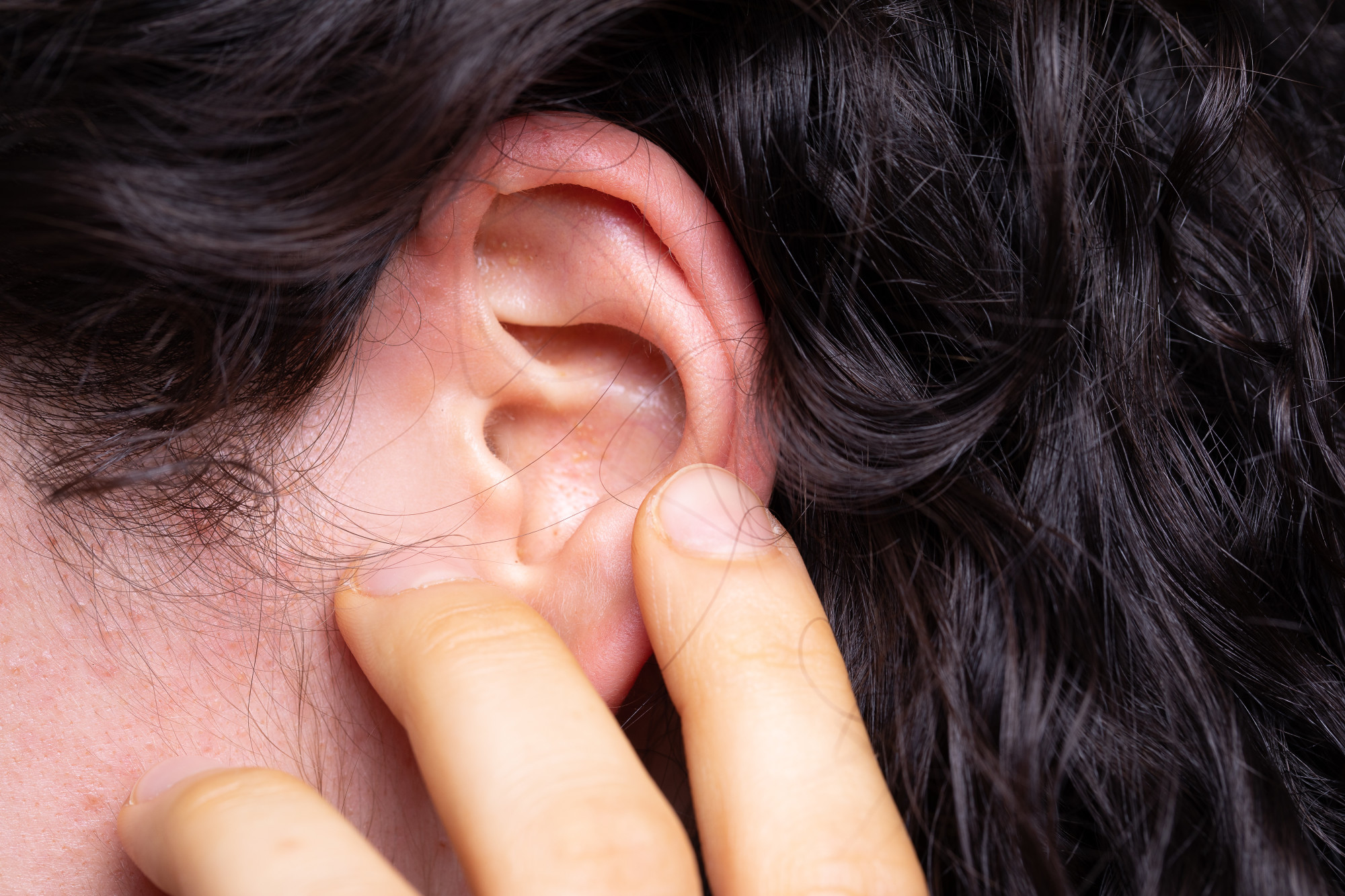The human ear is a sensitive, finely balanced mechanism of the body and it can easily be neglected as one grows into adulthood. Ear pain may be fairly common in children, but as adults, it’s far rarer.
While ear pain does not immediately point to an infection, it could be bring-to-light other health issues you may not have even thought of. Your ears may be for listening, but it’s also important to listen to them when they’re trying to tell you something.
If you find yourself asking ”why is my ear hurting?” this blog outlines all the possibilities.
1. Ear Infection
Ear infections in adults are not as common as in children. However, adults are not totally immune to them. Otitis externa, also known as swimmer’s ear is a common infection that can cause mild or severe ear pain.
Usually, water inside the outer ear canal causes bacterial growth, which leads to an infection. Objects inside the ear canal can also cause infection, such as cotton swabs. These foreign bodies damage the thin layer of skin that protects the ear canal.
If the pain is severe, it’s important to schedule a doctor’s checkup right away. You will be referred to a specialist for more advanced infections is, such as Dr. Zadeh, an ENT (ear, nose, throat) specialist.
2. Sinus Infection
This is another common cause of ear pain that many adults fail to acknowledge. Your nose, sinuses, and ears are intricately connected. Swelling in the lining of the sinuses and nose can cause excess pressure, resulting in ear pain.
Sinus infections are often caused by exposure to dust and smoke, as well as untreated colds, and irritation due to allergies.
3. Excessive Ear Wax Buildup
Ear wax is completely normal and essential for the health of your ears. But too much of it can cause a host of issues. An excessive buildup of wax can lead to dull earache and your ears feeling constantly ”full”.
Do not attempt to clean out ear wax buildup with an earbud. This can sometimes do more harm than good. You’ll need to be diagnosed and treated by your doctor to remove excessive ear wax.
4. A Ruptured Eardrum
A ruptured eardrum can be intensely painful, characterized by a small tear in the tissue between the outer ear canal and the middle ear.
Common symptoms of a ruptured eardrum include sharp, intense pain that comes and goes very quickly and leaking mucus from your ear. As well as temporary hearing loss, constant ringing in your ears, vertigo, nausea, or vomiting.
The cause of a ruptured eardrum varies, including severe head injury if you’re in an accident. Other causes include middle-ear infections, prolonged exposure to very loud noise, or changes in air pressure.
5. Temporomandibular Joint Pain (TMJ)
Anyone who suffers from TMJ will tell you how uncomfortable and painful this type of jaw pain is.
Basically, the jawbone is connected to the skull via the temporomandibular joint. TMJ is usually a result of head injury, teeth grinding, teeth clenching, or poorly aligned teeth.
As a result, this constant jaw tension and inflammation can travel up to the ear and cause dull, aching pain.
6. A Tooth Abscess
An abscessed tooth can cause all types of painful woes. Generally, the pain is located in the mouth and along the jawbone.
But if the abscess is large enough, pain can travel up into the ear as a dull, throbbing pain, or as persistent itchiness in the ear.
Treatment Options For Ear Pain
The treatment plan for your particular type of ear pain obviously depends on what’s causing the pain in the first place.
It’s not advised that you guess what’s causing your ear pain and attempt to treat it yourself. Instead, schedule a checkup with your doctor or an ENT specialist.
For ear infections, you are prescribed antibiotic ear drops and over-the-counter painkillers, such as Advil. If the infection is advanced, oral antibiotics are necessary.
If you have a ruptured eardrum, it is usually left to heal on its own, which may take a few weeks. However, your doctor will prescribe antibiotics for an infection. Over-the-counter drugs are recommended for pain. If the rupture is large enough, you may need a surgical procedure to repair it.
You don’t always have to turn to pharmaceuticals for pain relief though. There are a few simple remedies for pain.
You can apply an ice pack or heat pack to your painful ear — just don’t use extreme temperatures. Or, try not to sleep on the side of your affected ear and elevate your head a little with an extra pillow
Remember that ear pain doesn’t always away on its own, this especially important for small children. If your earache is accompanied by a high fever, it’s time to see a doctor.
The same goes for symptoms such as headaches, dizziness, swollen ears, or weakened facial muscles. If your symptoms worsen within 24-hours, seek medical attention as soon as possible.
Why Is My Ear Hurting? Now You Know the Possible Causes
If you find yourself wondering ”why is my ear hurting?”, don’t leave it unattended for too long. Your body is trying to tell you something, and without medical attention, this could only lead to bigger problems down-the-line.
Looking for more handy advice as a parent? Check out the rest of this website for articles on family life, how to save money, and earn money through thrifty business.
